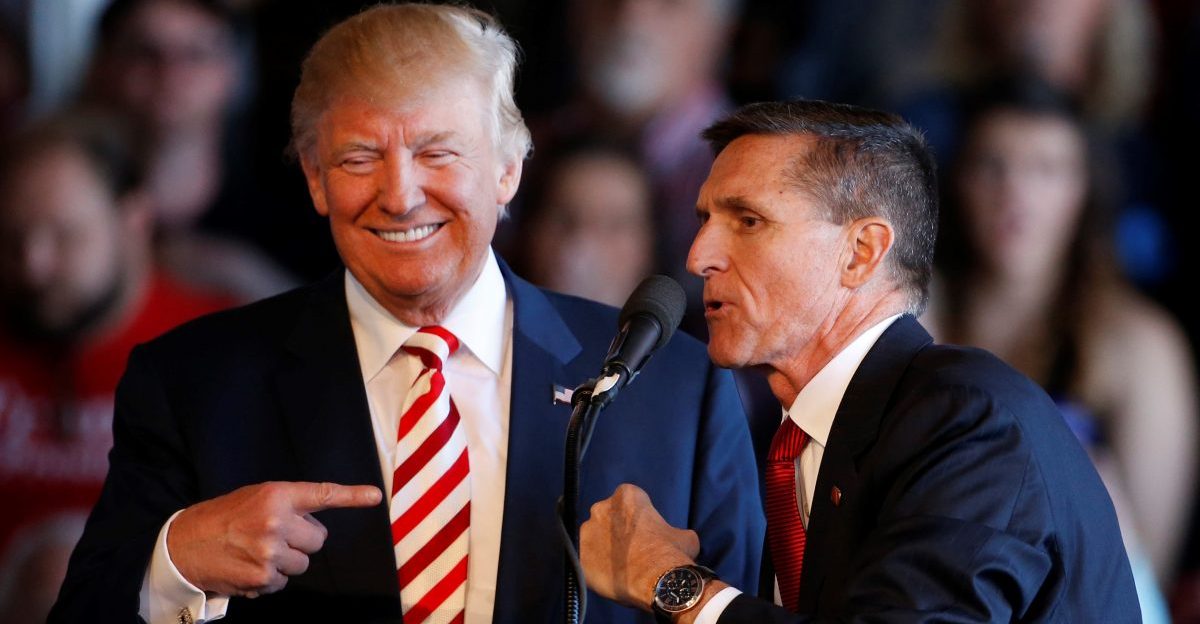
Former Trump National Security Advisor Gen. Michael Flynn filed documents in federal court Tuesday evening seeking permission to withdraw his guilty plea on charges of lying to the FBI, citing to the government’s alleged “bad faith, vindictiveness, and breach of the plea agreement.” The audacious legal strategy is the latest in a series of seemingly ill-conceived gambits by Flynn’s defense team, and one which legal experts believe is clearly aimed at coaxing a pardon out of President Donald Trump.
https://twitter.com/SidneyPowell1/status/1217261200507129858
Federal prosecutors last week recommended Flynn serve up to six months in prison for failing to comply with the terms of his initial deal after Flynn changed his story and sabotaged prosecutors’ case against his former business partner Bijan Kian.
Although similar attempts to portray her client as the victim of political persecution were shot down by U.S. District Judge Emmet Sullivan as baseless, Flynn’s attorney Sidney Powell once again bet Flynn’s fate on the theory that there was a government conspiracy against him.
In light of the detailed confession Flynn provided prosecutors in 2017, it is unlikely he would be victorious at trial, the only remedy available if Sullivan were to grant his request to withdraw the plea. Several legal experts were, therefore, quick to point out that a pardon push was the obvious play here.
“These moves almost always backfire,” former federal prosecutor Elie Honig wrote of Flynn’s strategy. “It’s very difficult to withdraw a plea, it usually involves the defendant lying about why he pled in the first place, and it often ticks off the judge. Flynn just keeps begging the judge for jail time (and, clearly, begging Trump for a pardon).”
University of Michigan law professor and former U.S. Attorney Barbara McQuade reiterated that the move was likely a “play for a pardon.”
“Judge [Sullivan] can allow withdrawal if he finds it ‘fair and just,’” McQuade wrote. “[The government] recommended prison because it says Flynn changed his story after testifying at grand jury. If judge allows withdrawal, Flynn goes to trial. Seems like he figures he is going to prison anyway, so playing for a pardon.”
Former FBI Assistant Director of Counterintelligence Frank Figliuzzi and Georgetown Law professor Phillip Carter similarly interpreted the maneuver as an obvious angling for a pardon.
https://twitter.com/Carter_PE/status/1217431095639248897
Flynn’s attorney requested that his sentencing hearing be pushed from Jan. 28 to Feb. 27, a request to which the government has not objected.
[image via Image via George Frey/Getty Images]